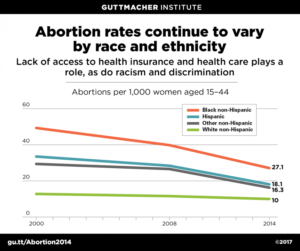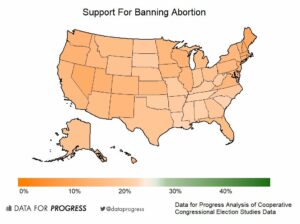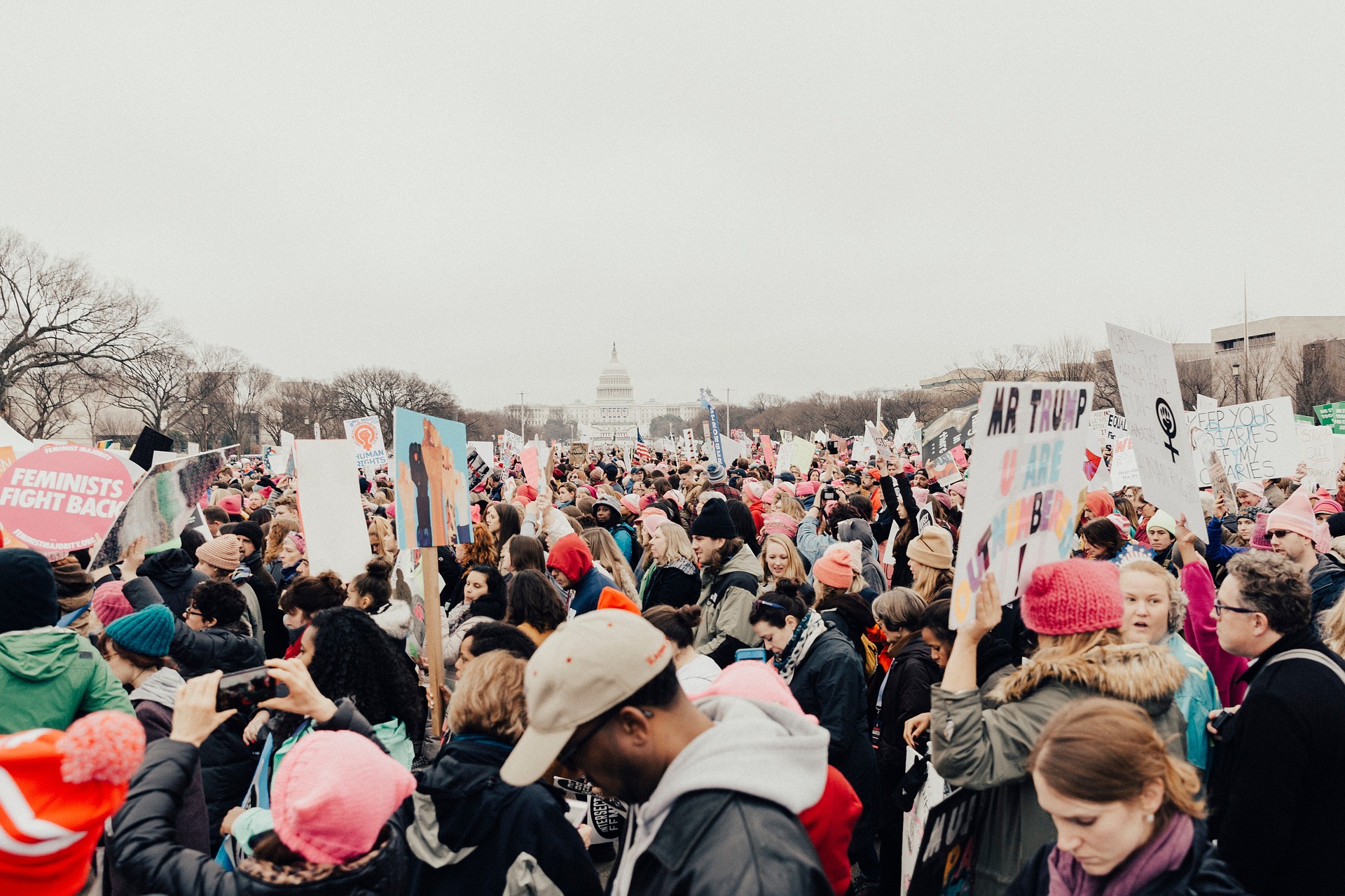All at once, six states have moved to outlaw abortion. Governors in Georgia, Mississippi, Kentucky and Ohio have introduced bills that would ban abortion after six weeks of pregnancy (before many people even know they’re pregnant). In Missouri it’s eight weeks. And Alabama has passed “the most restrictive and extreme abortion ban in the country,” according to Monica Edwards, Policy Fellow at Unite for Reproductive & Gender Equity (URGE). Under Alabama’s total outlaw, punishment for abortion will be more aggressive than punishment for rape.
The timing seems eerily like a coordinated assault on body autonomy and reproductive rights. These bills and new laws have yet to be enacted, and can still be challenged in courts. But with abortion reaching all time lows, one wonders what exactly is going on.
Outlawing Abortion Does Not Make It Go Away. It Makes It Lethal.
We know what happens when abortion is outlawed. In 1966, Romania tried it under communist leader Nicolae Ceaușescu. By 1989, maternity death had rates doubled, 10,000 women died (by conservative estimates), and when communism collapsed the same year, 170,000 children were found corralled in squalor, sometimes emaciated and chained to the bed frames of their “orphanages.”
The devastating long term consequences of abortion bans are the reason it needs to remain safe and legal. But anti-choice advocates insist on erroneously framing the debate as being about the sanctity of life.
Poor People and People of Color Will Suffer the Most
Because of the way police target Black people, the urban poor, and communities of color for crimes that wealthy whites are allowed to commit, we can see who will suffer the most punitive repercussions of restrictive new laws.
In Romania, many white women maintained access to contraceptives smuggled in from Germany, or were able to bribe their way out of imprisonment for their abortions. In America, more than half of people in need of abortions live below the poverty line. And Black people are more than twice as likely than whites to need an abortion.

These facts, along with the fact that Alabama’s ban was written by a white woman and signed into law by another white woman, betray the reality that banning abortion isn’t necessarily a matter of men attacking women. It’s a matter of class and race disparity.
The American Public Does Not Support Abortion Bans
Based on their analysis of the 2016 Cooperative Congressional Election Studies, Data For Progress reports that there are zero states in the US with even 25 percent of public support for an abortion ban. New research finds that 71 percent of Americans, and even 52 percent of Republicans support Roe vs. Wade. That’s an all-time high. So where is this legislation coming from?

Judd Legum, founder of ThinkProgress and Popular Information, vetted campaign finance databases to see who supports the lawmakers behind these attacks. He reports that in the six states passing restrictive abortion laws, there are six companies most directly responsible.
- AT&T donated $196,600 across all six states
- Walmart donated $57,700 across all six states
- Pfizer donated $53,650 across all six states
- Eli Lilly donated $66,250 across five of the six states
- Coca-Cola donated $40,800 across five of the six states
- Aetna donated $26,600 across four of the six states
These are the companies who, for whatever reason, are supporting the politicians behind the abortion bans.
Court Challenges to Come
The state level bans will likely be challenged in court. Alabama’s law could be thrown out based on its strictness even in cases of rape and incest. Meanwhile, people with wombs who value their body sovereignty may well start migrating to states like Oregon, where healthcare providers are required to provide abortions at no out-of-pocket cost to the patient.

